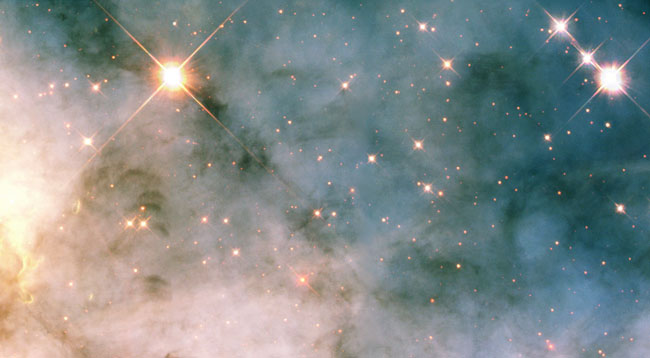The Turbulent Neighborhood of Eta Carina

Explanation:
How do violent stars affect their surroundings?
To help find out, astronomers pointed the
Hubble Space Telescope to the regions surrounding
Eta Carina, a star showing signs that it may explode
sometime in the next million years.
The nearby nebulosity,
shown above, is home to streams of
hot gas,
pools of cool gas, knots of
dark globules, and
pillars of dense
dusty interstellar matter likely forming young stars.
The
above image explores about three
light-years, a
region size intermediate to the
Eta Carina cocoon, which
spans only about one-half of a light year, and the
Great Nebula in Carina,
which spans over 300 light years.
In April of 1843
Eta Car briefly became second only to
Sirius as the
brightest star in planet Earth's night sky,
even though at a distance of about 7,500 light-years,
it is about 800 times farther away.
Authors & editors:
Robert Nemiroff
(MTU) &
Jerry Bonnell
(USRA)
NASA Web Site Statements, Warnings,
and Disclaimers
NASA Official: Jay Norris.
Specific
rights apply.
A service of:
LHEA at
NASA /
GSFC
& Michigan Tech. U.

